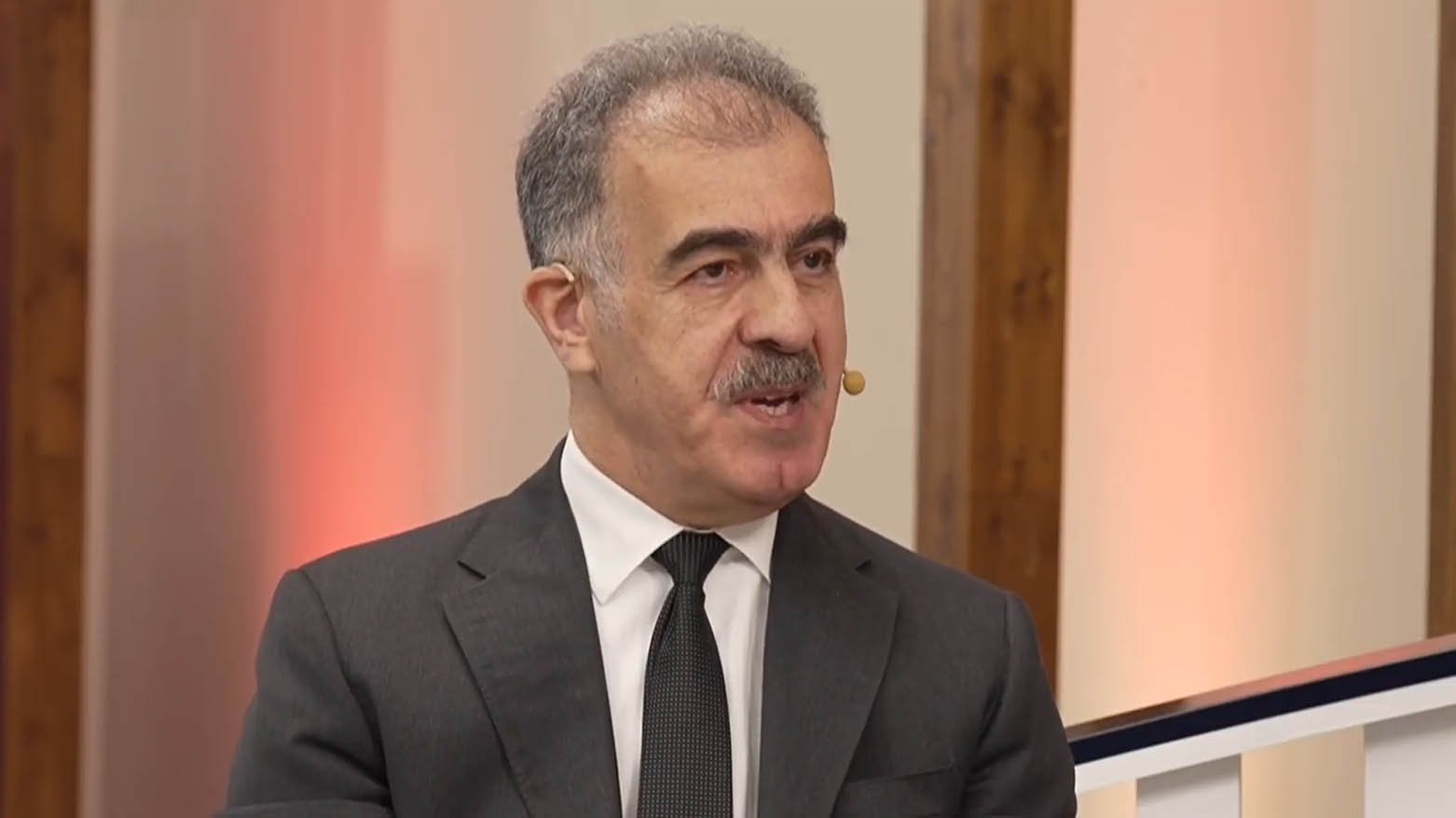Dizayee Warns Kurdish Unity is Crucial to Protect Kurdistan's Gains in Baghdad Talks
Dizayee warns Kurdish unity is critical ahead of Baghdad talks, while Adel Bakawan presents stark data on Iraqi youth identity at MEPS. The forum concluded three days of high-level discussions in Dohuk.

ERBIL (Kurdistan24) – Safeen Dizayee, Head of the Kurdistan Region’s Department of Foreign Relations, warned that the achievements of the Kurdistan Region are facing mounting threats, emphasizing that Kurdish political consensus is essential ahead of government-formation talks in Baghdad. His remarks came on Wednesday, during an interview with Kurdistan24 on the sidelines of the MEPS 25 Forum.
Dizayee stressed that the Kurdistan Region’s economic, infrastructural, and governance successes—described as the result of “hard work and the wise vision of the regional government”—are now under pressure. He said that one of the principal challenges stems from “the behavior of the federal government,” which he described as a source of political and constitutional strain on the Region.
He added that several Iraqi political actors still approach federal affairs with a centralist mindset aimed at limiting the rights and status granted to the Kurdistan Region by the constitution. With Iraq’s parliamentary elections concluded and negotiations to form a new government set to begin, Dizayee said the stakes are high.
“We are in a critical stage because the elections are over, and we are on the verge of starting negotiations to form a new government,” he explained. “If the Kurdish parties are united, they can secure more gains in Baghdad. However, if that consensus is not achieved, the Kurdistan Democratic Party (KDP) can impose its own weight and influence.”
His comments reflected the political reality that Kurdish cohesion often determines the Region’s negotiating power within federal politics, especially during sensitive government-formation periods.
In another MEPS panel, Adel Bakawan, Director of the French Research Center on Iraq, presented findings from a series of detailed social and political studies conducted among young Shi’a Iraqis. His remarks drew significant attention, highlighting the depth of fragmentation within Iraqi society and the crisis of national identity.
Bakawan stated that the majority of young Shi’a in central and southern Iraq view the Kurdistan Region as a “poisoned dagger in Iraq’s back,” a perception he linked to long-standing internal grievances and widespread political disillusionment.
He noted that during the 2019 protests in Baghdad, young demonstrators rose against corruption and unemployment, during which 600 were killed—“and those who killed them were also Shi’a,” he said.
According to a large scientific study Bakawan conducted with his research team across the corridor between Baghdad and Basra, 89% of young people surveyed said they wished “God had created them Saudi, Emirati, or Qatari—not Iraqi.” He added that 95% of them believe Iraq’s political elites are incapable of improving living conditions under any circumstances.
He further revealed that 77% do not consider Kurdish to be an Iraqi language and believe that demonstrating “Iraqiness” requires knowledge of Arabic. Bakawan contrasted this with the state-building experiences of Saudi Arabia, the UAE, and Qatar, saying these states succeeded once they distanced themselves from ideological debates on Arab nationalism, moving instead toward creating coherent national identities. Iraq, he argued, must learn from these models in order to construct an “Iraqi nation.”
In a critical observation about symbolic identity, he said that these youth recognize Ayatollah Ali al-Sistani as part of Iraqi identity but refuse to accept General Mustafa Barzani in the same context. Bakawan warned that such thinking “is dangerous for Iraq’s future because instead of bringing Iraqis closer together, it divides them.”
The data he presented underscored the gravity of sectarian and ethnic fractures and the challenge facing any future Iraqi government.
The sixth Middle East Peace and Security Forum (MEPS) concluded its work on Wednesday, following three days of intensive discussions, dialogues, and academic engagement at the American University of Kurdistan in Dohuk.
Hunar Essa, President of MEPS, formally announced the close of the forum, expressing hope that the University will host the seventh edition next year. He noted that hosting President Masoud Barzani, international delegations, senior officials, academics, and youth transformed MEPS 25 into an influential platform bridging decision-makers and emerging voices in policy and research.
Essa highlighted President Barzani’s participation, saying it reaffirmed the importance of the Kurdistan Region’s role in pursuing peace as a central objective for the broader Middle East. He described MEPS as a constructive channel that offers meaningful dialogue at a time when the region faces instability and heightened security challenges.
He added that MEPS functions as a bridge between policymakers and research institutions, giving scholars, students, and youth the space to generate new ideas that can help shape the future of Iraq, the Kurdistan Region, and the wider Middle East.
In his closing remarks, Essa thanked the American University of Kurdistan in Dohuk and all organizers, participants, researchers, academics, students, media outlets, and attendees, expressing hope that MEPS 2027 will welcome an even broader range of voices.